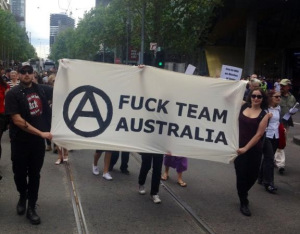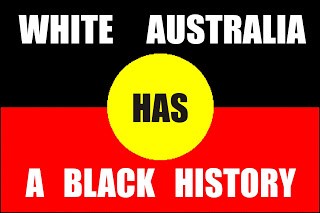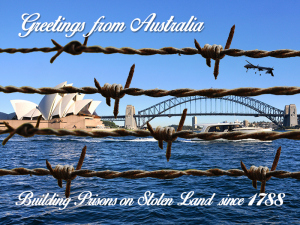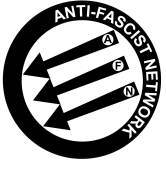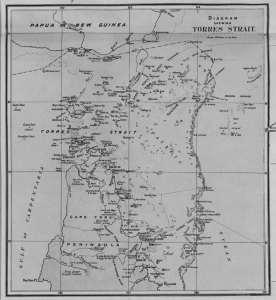The following is written by a member of Anarchist Affinity and an active Antifascist.
It seems obvious that the main conflict and debate that is raging in the immediate aftermath of the latest round of Reclaim Australia isn’t even about the fascists, but about the police, though the two are linked. Many people are shocked by the level of violence and aggression displayed by the police, and plenty of people are condemning those on the left for physical confrontation as much as they are the fascists. I think both of these views are mistaken.
For a start let’s deal with the police. It’s important that our media explains that the cops aren’t on our side- but let’s not pretend to be surprised either. Many people see the police through the traditional liberal lens- that they exist to protect society from crime. For the many people who copped pepper spray, saw the police pepper spray medics, took random punches to the face and received cursory “fuck offs” from the police yesterday, that notion is not going to gell particularly well with their feelings at the moment. Marxist or Anarchist theory will point out to you that the police exist to protect private property and the state, and little else.
Yesterday was one of the more open ‘iron fist under the velvet glove’ moments we’ve had in Australia in a while. Certainly the most since I’ve been an activist. Believing that cops exist to protect you probably means that you’re from a somewhat privileged background whereby the police are more friendly/less violent towards you. Try asking some of the blackfellas from Redfern why they don’t like cops; or the Grocon workers who have had their pickets smashed by riot cops because they went on strike to defend safe workplace conditions. The police are the armed protection of a stratified class society, and when they defend and facilitate fascist rallies based on the liberal ‘free speech laws’, what they’re doing is defending movements (i.e the racist fascists) who’s growth will smash working class and civil rights. There are numerous reports of racism within the Australian police force, and countless black deaths in custody that no one has ever been charged for; the Australian police are not in any way exceptional, their acts of oppression and racism are similar to that of the police forces in other nations. Control and oppression just come with the role. The psychology of police can be debated by other people, I don’t doubt that there are police who genuinely take the job thinking of the ‘positive’ social roles, but that’s not inherently what the role of the police force is. That is why people use slogans like ACAB (All Cops Are Bastards). Not because they’re so ignorant to think every individual police person is necessarily an absolute bastard. Part of building a revolutionary movement will mean, at some stage, confronting and dismantling the police institution and replacing it with something that’s actually democratic. With something that responds to working class needs whilst maintaining the few positive social roles they do have and destroying the rest.
So, the police pulling pepper spray was ‘in response to violence from the left’, apparently. Maybe this is true, I certainly saw some of it. But I sure as hell will not condemn anyone for it*, especially when known nazi squads deliberately wandered into our crowd provoking a fight. Violence should never be a first resort or even an ideology, and by the same token neither should non-violence. They are simply strategies employed for political purposes. We are not living in a fantasy world, where everyone is going to ‘respect’ everyone else and just stand around in the streets and have a big debate over cupcakes or tea or something. I had friends there yesterday whose rage I think was/is entirely justified; whose family members have been racially abused and attacked for years. Of course they were going to be really fucking angry. Yesterday they wanted to defend their themselves and their communities, and what they faced was an active racist and fascist movement on the streets, with the police backing them up. You can only take so much abuse before you fight back.
Some reading of the history of fascism will point out to you that fascist politics is entirely about physical domination of the streets and their opponents. Hitlers ‘Blackshirts’, Mussolinis ‘Brownshirts’, the National Front etc. We are dealing with much more than our local fundamentalist anti-abortion Catholics here. Reclaim, the United Patriots Front and their fellows on the far-right aim to use their cries of ‘free speech’ and their ‘politically acceptable’ rallies to start building political space and a movement that will grow to allow them to dominate. At times the first call of response has been violent confrontation – we know the anarchists and communists of 1930s Germany had to employ street fighting as a tactic, and maybe if our liberal friends had supported them Hitler may not have won. The Battle of Cable Street is another classic example. Red Action in the 80’s UK forced the Nationalist movements to retreat in ways that were extremely successful.
“Only one thing could have broken our movement – if the adversary had understood its principle and from the first day had smashed with extreme brutality the nucleus of our new movement.” – Adolf Hitler, 1933 Nuremberg Nazi Party rally.
*I was pepper sprayed twice yesterday, the first time was because I was attempting to pull away a fascist who had a) punched a friend in the face and b) attempted to choke another. At that stage, he hadn’t been attacked by the left. Then the cops attempted to arrest me. It was quite clear to me and everyone else yesterday that we weren’t the ones, and never were going to be the ones to be protected. Thanks again to the comrades who pulled me out of that situation.


